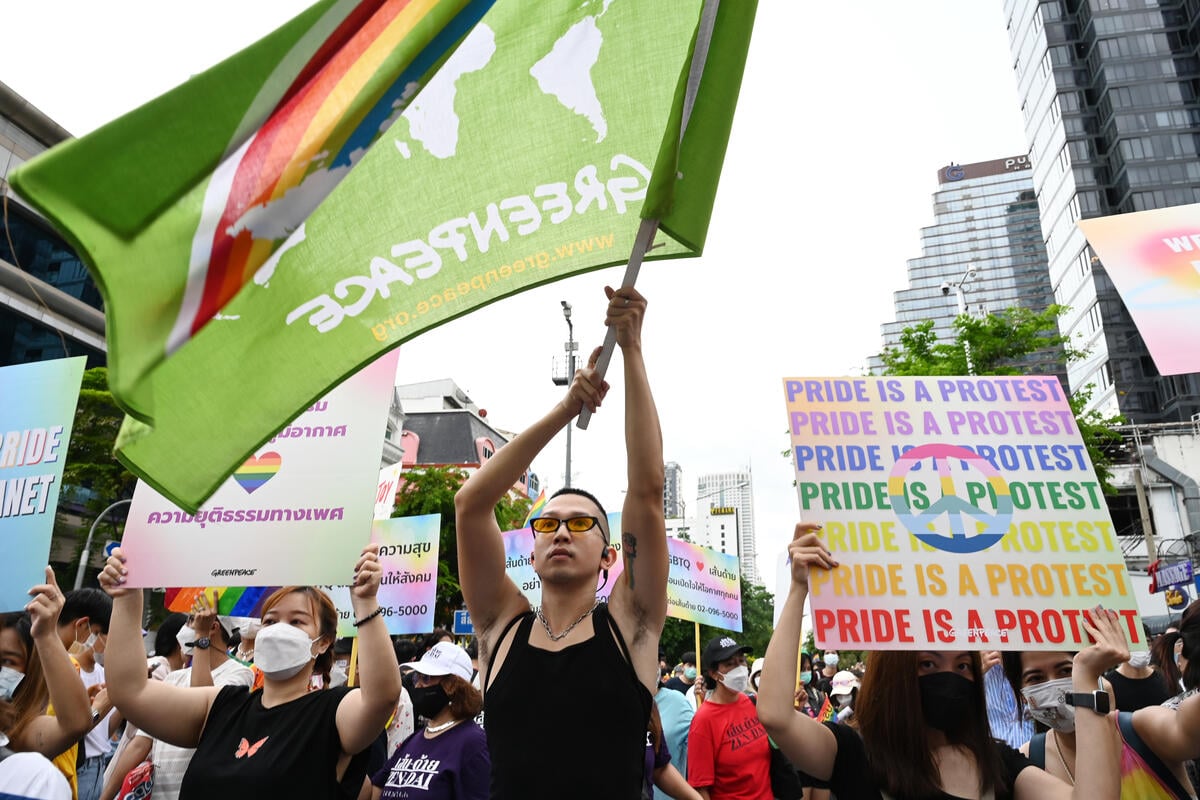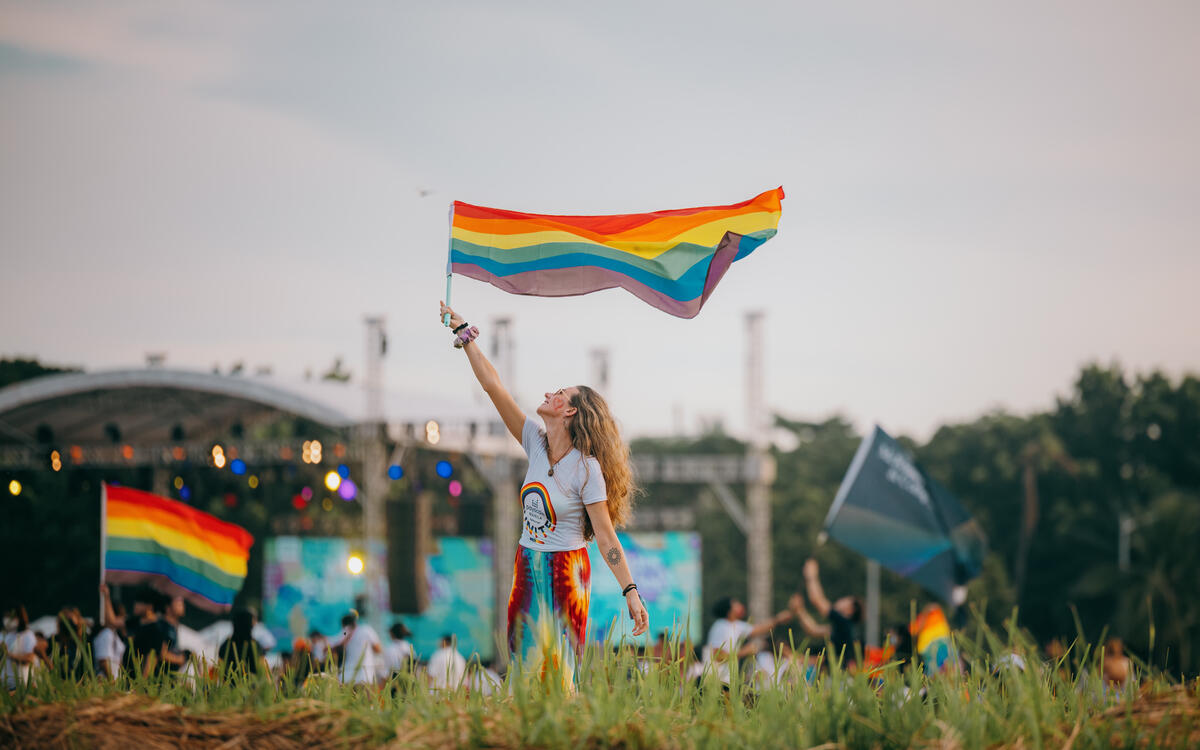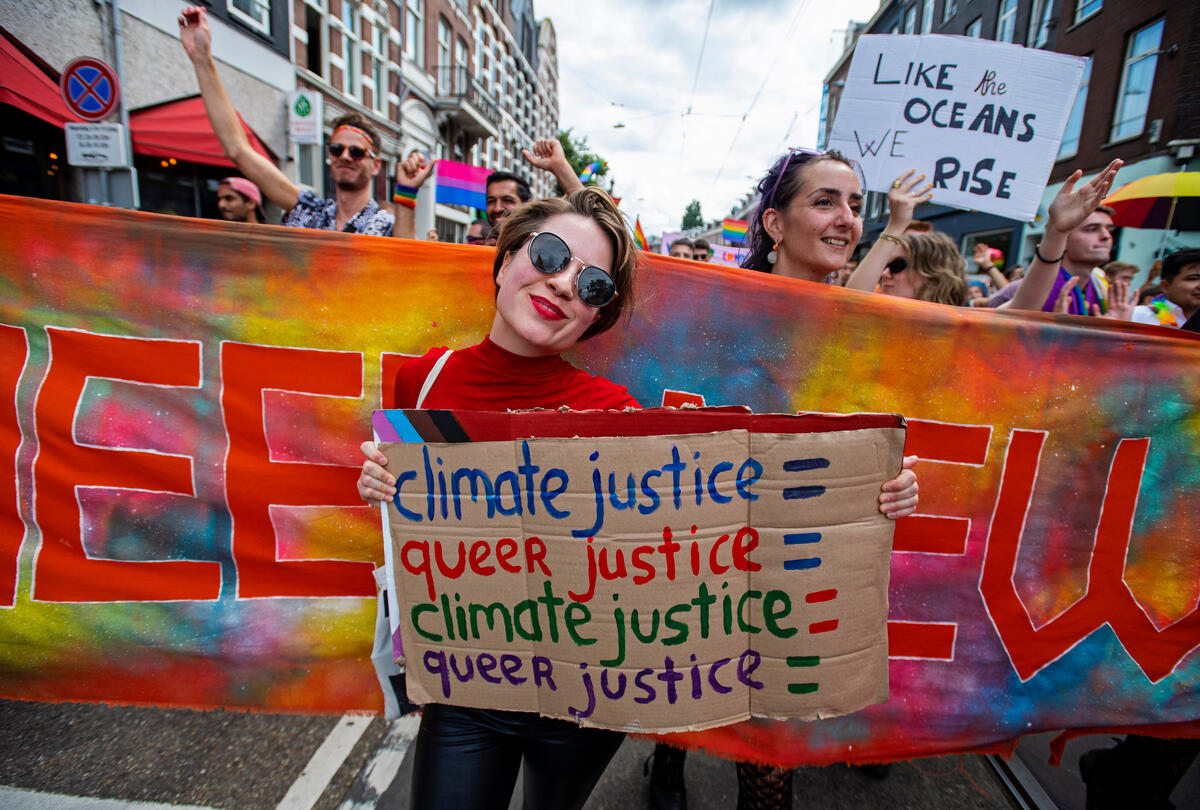At heart, the LGBTQIA2S+ movement and the environmental movement are involved in the same struggle to upend unjust power relations and secure the dignity and equality of every individual.

We at Greenpeace are often asked, why is an environmental organisation talking about LGBTQIA2S+ issues? What does queer justice have to do with climate change? Why don't you stay in your environmental lane?
Because the fight for environmental justice cannot be achieved without the fight for LGBTQIA2S+ rights – and the fight for social and racial justice, and gender equality. As we tackle the crises of climate change, pollution and loss of biodiversity, we must also address social issues of inequality and discrimination. There is no justice if there is no liberation for all.
It is not news that marginalised communities suffer the most in the climate crisis and during times of disasters. Further marginalised groups within the diverse LGBTQIA2S+ community, especially people of colour and low-income communities, experience even greater impacts of climate and environmental injustice.
In the fight for people and the planet, no one ought to be left behind. We believe we can only have a green and peaceful future when there's social justice for all.
Here are 6 blogs to help you understand the connection between climate justice and queer justice.

5 things you need to know about JEDIS and the climate crisis
JEDIS – Justice, Equity, Diversity, Inclusion and Safety – are values that are fundamental to Greenpeace. JEDIS officer, Yaewon Hwang, answers some common questions about the importance of JEDIS and how these values intersect with climate activism.
Yaewon writes: "The system we live in today has historically favoured and given special treatment to a select few, while leaving behind most individuals and communities with significant disadvantages. As a result of that, discussions about the climate crisis are very closely connected to broader social, gender, racial and economic injustices. Using JEDIS principles, Greenpeace's climate activism aims to make sure that marginalised communities, particularly those disproportionately impacted by the climate crisis, have their voices heard and their needs addressed." Read the full story.
For equality and climate action: a Q&A with 2 Filipino LGBTQ+ climate activists
The Philippines has been rated most at risk from the climate crisis, facing an average of 20 typhoons a year, the strength of which is increasing. Two Filipino activists share their thoughts on their struggles as an LGBTQIA2S+ in a climate vulnerable country and what inspires them to move forward in their activism.
Joshua*, an LGBTQ+ and environmental activist based in Bacolod City, says: "Living in one of the most vulnerable countries, and being poor, makes me more vulnerable to the impacts of climate change - I'm triple dead. But I can't and I won't back down." Read the full story.
* surname excluded for subject's safety.
How the climate crisis is perpetuating hate crimes in South Africa
As South Africa is hit by increasingly frequent and severe extreme weather events, it is intensifying existing social and economic struggles, as well as perpetuating hate crimes. Climate Justice activist and Johannesburg resident, Angelo Louw, reflects that shaping a sustainable and equitable world is possible, but it would take all of us to achieve it.
Angelo writes: "Without effective sensitisation of the climate crisis in grassroots communities, historically marginalised groups such as the LGBTQIA+ community not only remain at risk of violence, but will continue to be systematically excluded from our failing economy, as well as relief efforts aimed at alleviating climate impacts." Read the full story.
The disproportionate impact of climate crisis on the LGBTQIA2S+ community
The climate crisis affects everyone on this planet but not equally. Already marginalised groups, including LGBTQIA2S+, are more likely to experience poverty, discrimination, and violence, which limits their ability to access resources and adapt to the changing environmental and societal conditions on our warming planet.
JEDIS officer Shanthuru Premkumar writes: "LGBTQIA2S+ individuals are often forced to leave their homes due to family conflicts, threats of abuse or actual violence, which makes them experience higher rates of homelessness. They also tend to move to segregated locations to reduce the risk of discrimination and harassment from neighbours and landlords. These areas are often the most polluted, which causes many health issues long term and also make them much more vulnerable to natural disasters." Read the full story.
Proud to be Rainbow Warriors

When June comes around, Greenpeace puts on its dancing shoes and participates in Pride events around the world to show solidarity with the LGBTQ+ movement and promote the diversity of its people (with banners in tow, of course!).
Communication strategist Diego Gonzaga writes: "Growing up and simply being an LGBTQ+ person can be a very different experience depending on where you live. But whether you are in a country where your rights are protected by law, or in a place where your life can be under threat, LGBTQ+ are proud to be able to always find community and support among each other. And at Greenpeace, we're happy to be able to support the community and embrace what pride is all about: LOVE." Read the full story.
Rainbow warriors: how queer movements can inspire climate activists
When it comes to standing up against powerful forces and demanding change, the queer movement offers powerful examples of imaginative and determined action that brings people together for real change. Georgia Whitaker celebrates three inspiring activists, Marsha P Johnson, Booan Temple and Tim Bailey, who helped to build powerful movements to guarantee their rights and pave the way for a better future for generations to come.
Georgia Whitaker writes: "Younger millennials like me who enjoy these hard-won privileges now struggle to imagine what our lives would have been like in recent decades, and we have phenomenal activists and their movements to thank for that. " Read the full story.






